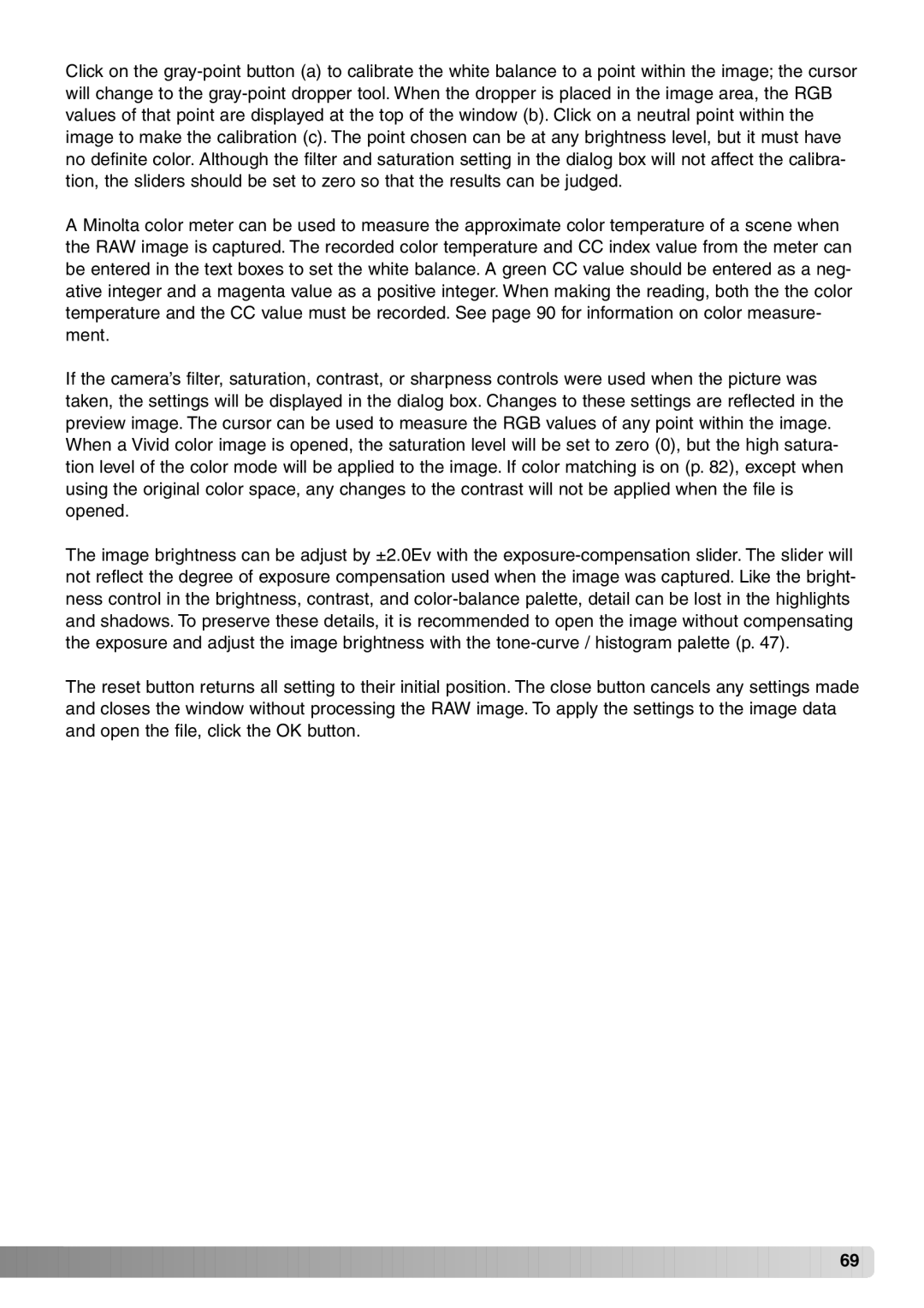
Click on the
A Minolta color meter can be used to measure the approximate color temperature of a scene when the RAW image is captured. The recorded color temperature and CC index value from the meter can be entered in the text boxes to set the white balance. A green CC value should be entered as a neg- ative integer and a magenta value as a positive integer. When making the reading, both the the color temperature and the CC value must be recorded. See page 90 for information on color measure- ment.
If the camera’s filter, saturation, contrast, or sharpness controls were used when the picture was taken, the settings will be displayed in the dialog box. Changes to these settings are reflected in the preview image. The cursor can be used to measure the RGB values of any point within the image. When a Vivid color image is opened, the saturation level will be set to zero (0), but the high satura- tion level of the color mode will be applied to the image. If color matching is on (p. 82), except when using the original color space, any changes to the contrast will not be applied when the file is opened.
The image brightness can be adjust by ±2.0Ev with the
The reset button returns all setting to their initial position. The close button cancels any settings made and closes the window without processing the RAW image. To apply the settings to the image data and open the file, click the OK button.
![]()
![]()
![]()
![]()
![]()
![]()
![]()
![]()
![]()
![]()
![]()
![]()
![]()
![]()
![]()
![]()
![]()
![]()
![]()
![]()
![]()
![]()
![]()
![]()
![]()
![]()
![]()
![]()
![]()
![]()
![]()
![]()
![]()
![]()
![]()
![]()
![]()
![]()
![]()
![]()
![]()
![]()
![]()
![]()
![]()
![]()
![]()
![]()
![]()
![]()
![]()
![]()
![]()
![]() 69
69 ![]()
